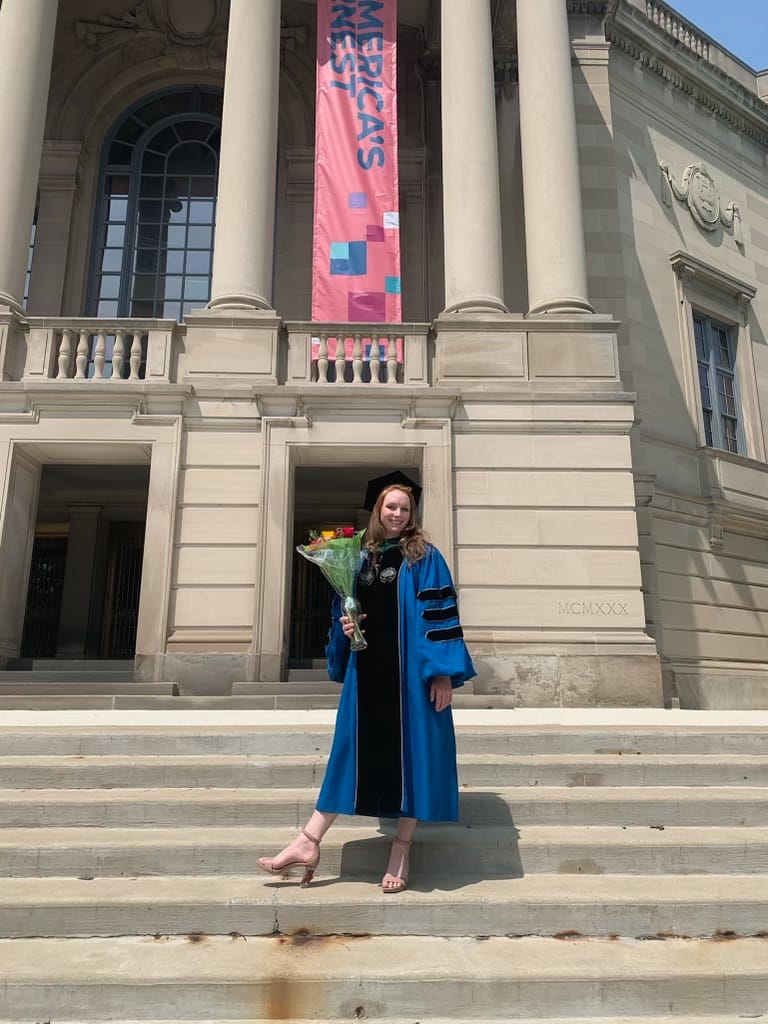Halle Kotchman, MD is a CaseMed graduate, presently halfway through her emergency medicine residency at the level 1 trauma center safety net hospital, MetroHealth (my favorite hospital in Northeast Ohio!!). I was blessed in my second year of medical school to meet her when she chose me (goosebumps!) to co-found a local chapter of the international organization Medicine In Motion, a fitness and philanthropy club to connect like-minded athletes and healers to simultaneously move our bodies and do good. Halle and I had our peers and faculty running 5ks and competing in a CrossFit-style holiday Open competition during a lonely, distanced COVID-19 year of schooling.
I'm forever in awe of her for keeping up with her rigorous Olympic lifting programming alongside her medical training - she didn't miss a single day while on rotations in third year, and inspired me to prioritize my dedication to CrossFit and yoga in the same way. She taught me through her lived example that advocating for myself to have that space and time was indeed possible, and it was critically important for my well-being. Our gym in Cleveland, PHYT CLE Athletics, is our shared favorite place for endorphins, love, and a solid sweat.
I'm honored to be sharing her story of being diagnosed with idiopathic hypersomnia. Halle is open to speaking to others who share her diagnosis, or are curious to connect with her as she continues to (amazingly) maintain her physical capacity for weightlifting and learning on the wards during residency. She is busy (understatement), so if you message her, please be understanding and patient!
You can find her on Instagram @HalleKotch.
the diagnosis: how, when, where
I have been exhausted since my junior year at West Point. I was diagnosed with depression, iron deficiency, and several other things without any improvement. I was shuffled around doctors with no definitive answers. I did research myself, and suspected I had ADHD. I saw a psychiatrist, and I was briefly put on stimulants like Vyvanse and Adderall, and both just made me more tired. I went back to my psychiatrist, and asked for a referral to sleep medicine because something didn’t feel right. I told her “my sleep habits aren’t healthy, and I think a sleep study and referral to sleep medicine is what I need next.” Initially she didn't want to refer me, because she felt there was more we could try from a psych perspective. But I insisted and she finally agreed. Sleep medicine took a while to see. Finally at my appointment they told me I had “excessive daytime sleepiness” according to my high score on their objective fatigue scale.
The sleep study was next, which is the definitive test for sleep disorders. The sleep study is primarily to rule out sleep apnea because this is a common cause of daytime sleepiness. The next day, I did an MSLT (multiple sleep latency test) with opportunities for napping throughout the day (a total of 5 chances to nap). You are scored based on how quickly you fall asleep and whether you enter REM sleep. To be diagnosed with idiopathic hypersomnia, you have to fall asleep within 5 minutes and sleep each time during naps. This test was awful for me. You're sleep deprived, and then your sleep is interrupted, and you aren't allowed to sleep after they wake you up. My average time to sleep was 2.5 minutes, and I slept during all the naps. I only got REM in one of my naps. Since I had done my own research and kind of peeked at my results - since you can see your own on MyChart, I was expecting my diagnosis. My official diagnosis came while I was in Texas on a rotation, via virtual visit. My doctor told me that I met the criteria for idiopathic hypersomnia. She told me it was not very treatable, and there was only one FDA approved medication. This was frustrating but also validating, because I finally had a diagnosis, though there were few options available to me. For context, narcolepsy, another sleep disorder but far more common condition, has many more approved therapies because it's so much more common.

"idiopathic" and the challenge of invisible illness
Something that bothers me about my diagnosis is the phrase idiopathic. It always feels like a cop-out to me — there’s an association in medicine with it being made up or not truly real. People understand narcolepsy, but they don’t understand my diagnosis. Having a label was helpful to me, because it made at least one treatment available. It also validated me - it wasn’t just in my head. But I still have this sense that it’s similar to, say, fibromyalgia, in the world of medicine, because there’s a lot of stigma and potentially confusion or judgment around the diagnosis I carry now.
I'm careful about the sleep specialists I see, and the other outpatient doctors I see. It's kind of like when you have fibromyalgia and you go see a pain specialist who doesn't "believe in" your diagnosis. You're just not going to get appropriate treatment from someone who thinks that way. I think my diagnosis is similar to the category of the "trendy Tik Tok diagnoses" I see a lot in the reddit threads online. They always include things like POTS, fibromyalgia, and other obscure, difficult-to-diagnose-and-treat diseases that many patients end up self-diagnosing. As an example, at work or in other medical places, there's sometimes an eye roll from MDs when the diagnosis "POTS" is listed but there's no tilt-table testing in their chart (the gold standard for diagnosis). Whenever I see this happen with my colleagues, I ask them "Do you know how long it takes to get tilt-table testing done?" And try to help them remember that it's hard to access care. It's really difficult to get to see the specialists you need.
the diagnosis: why? where do you think your dis-ease came from?
I think there’s a genetic component; a part of me has always been tired. In high school, though, I was always able to do whatever I needed - to wake up early and do my whole day, do practice and work and then sleep six hours and be just fine. When I went to West Point, there was a lot of sleep deprivation and a lot more stress. Around sophomore year, I just couldn’t get out of bed to go to morning workouts. I was missing my alarms and sleeping in. I was just so tired. During junior year, I took a nap at any opportunity - I was exhausted. I didn’t have enough rest or sleep at West Point, and there was no way for me to properly care for myself while I was there. So I think it was a combination of being slightly predisposed, and then the environmental triggers of stress and not enough sleep.
what kinds of healing helped? what did you discover along the way?
My diagnosis was really helpful because the characteristic thing about my disease is that I do not get restful sleep. Receiving a diagnosis from western medicine was part of how I learned to find more coping mechanisms, because I could understand my illness more. I know my brain struggles to rest. So finding ways to rest that is not sleep has been healing for me. I took up paddle boarding, I get regular massages, and I carve out time and activities to really care for my body.
I do think it's really important to recognize that it takes time and space to learn how to take care of yourself. I've realized from talking to others in group chats online about my diagnosis that going to the gym every day seems really impossible to people when they are extremely tired. If I was trying to start going to the gym every day NOW, or especially when I was exhausted just from existing, there is no way it would have happened.
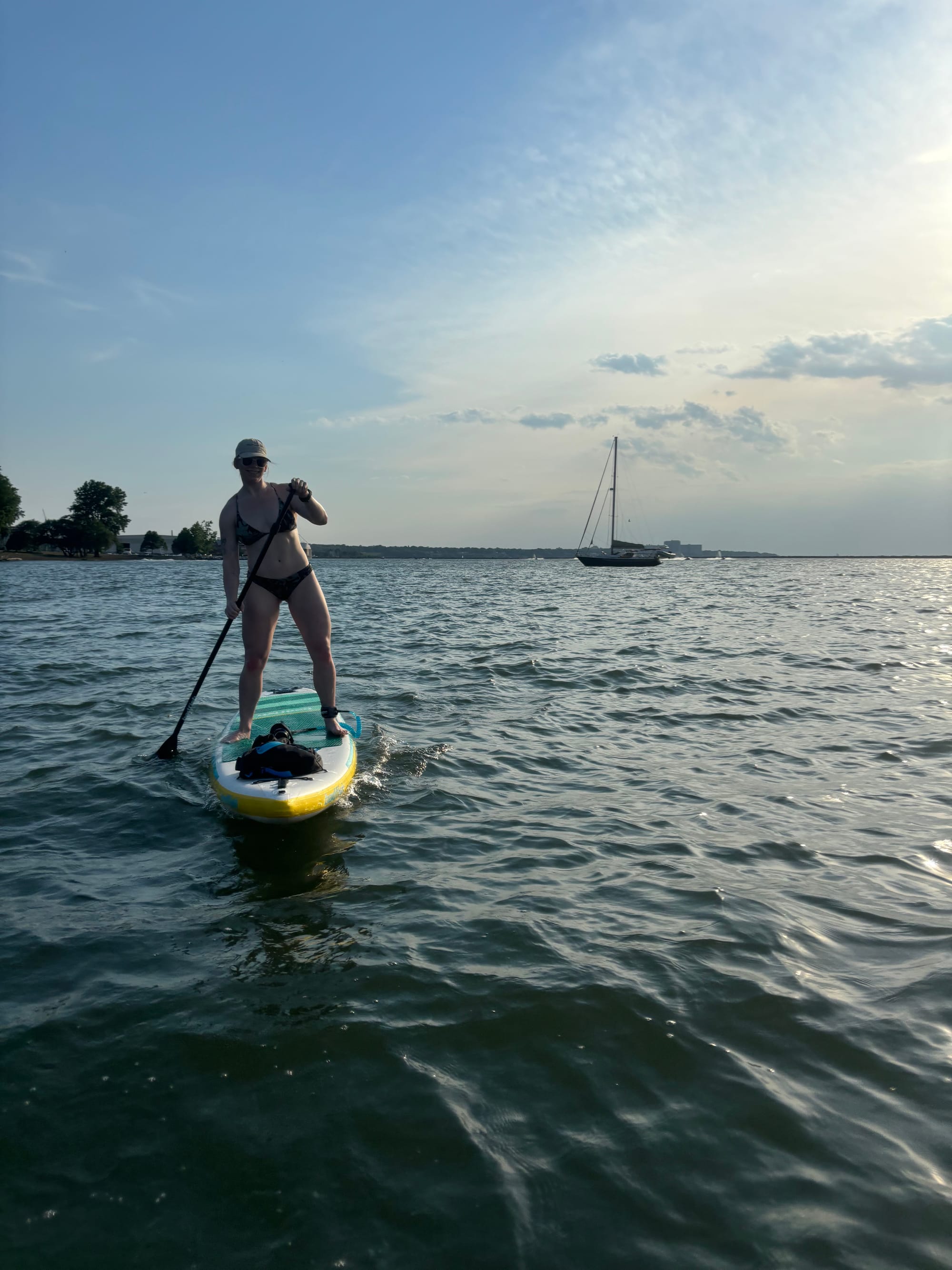
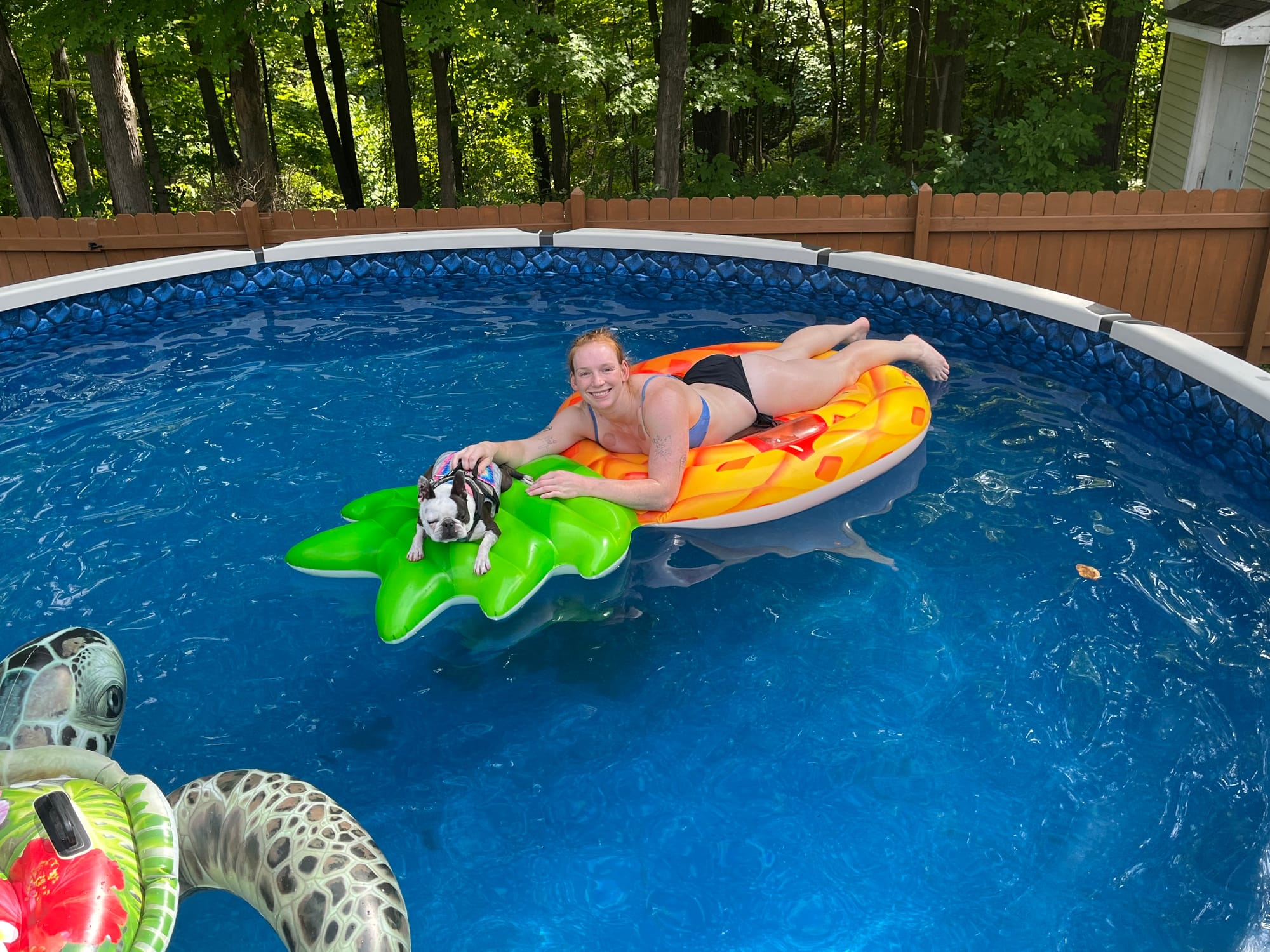
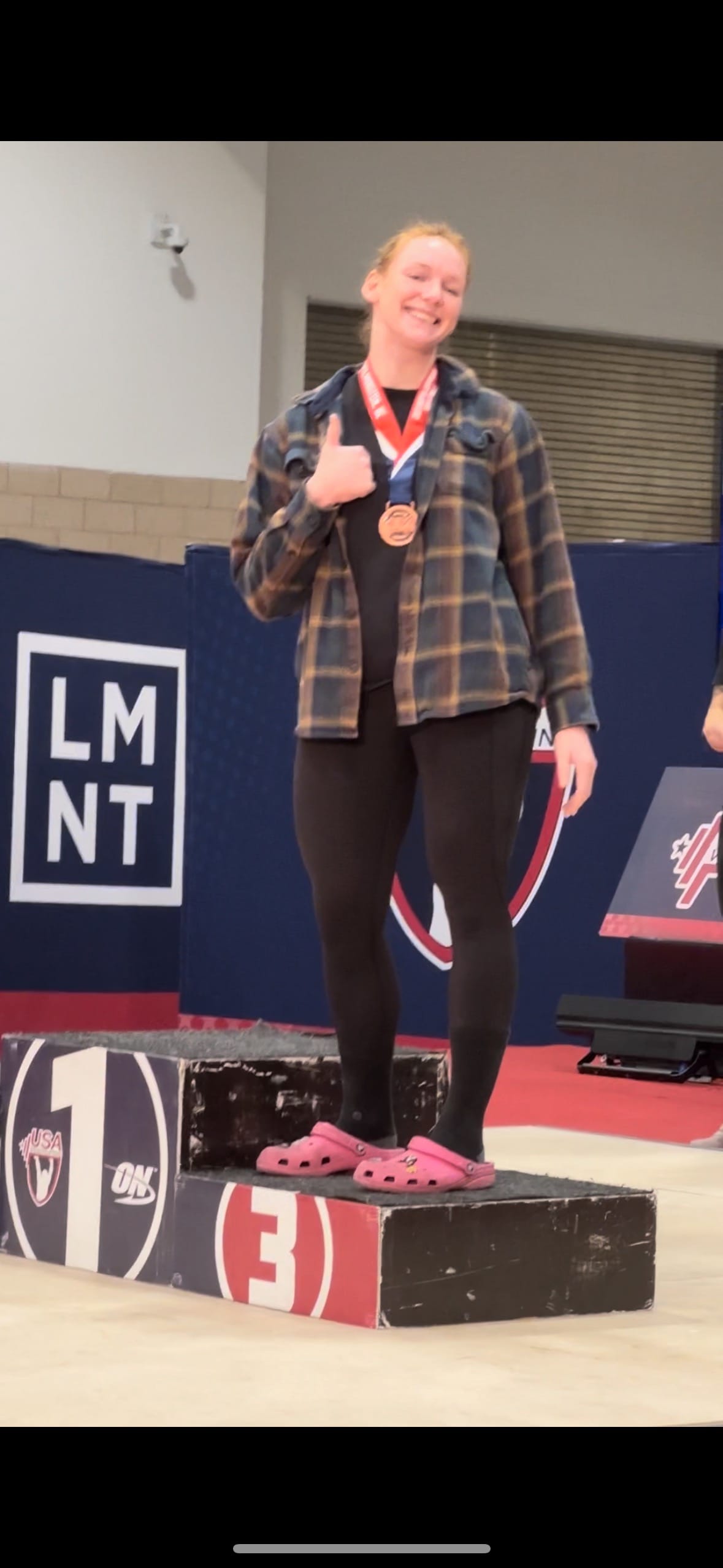
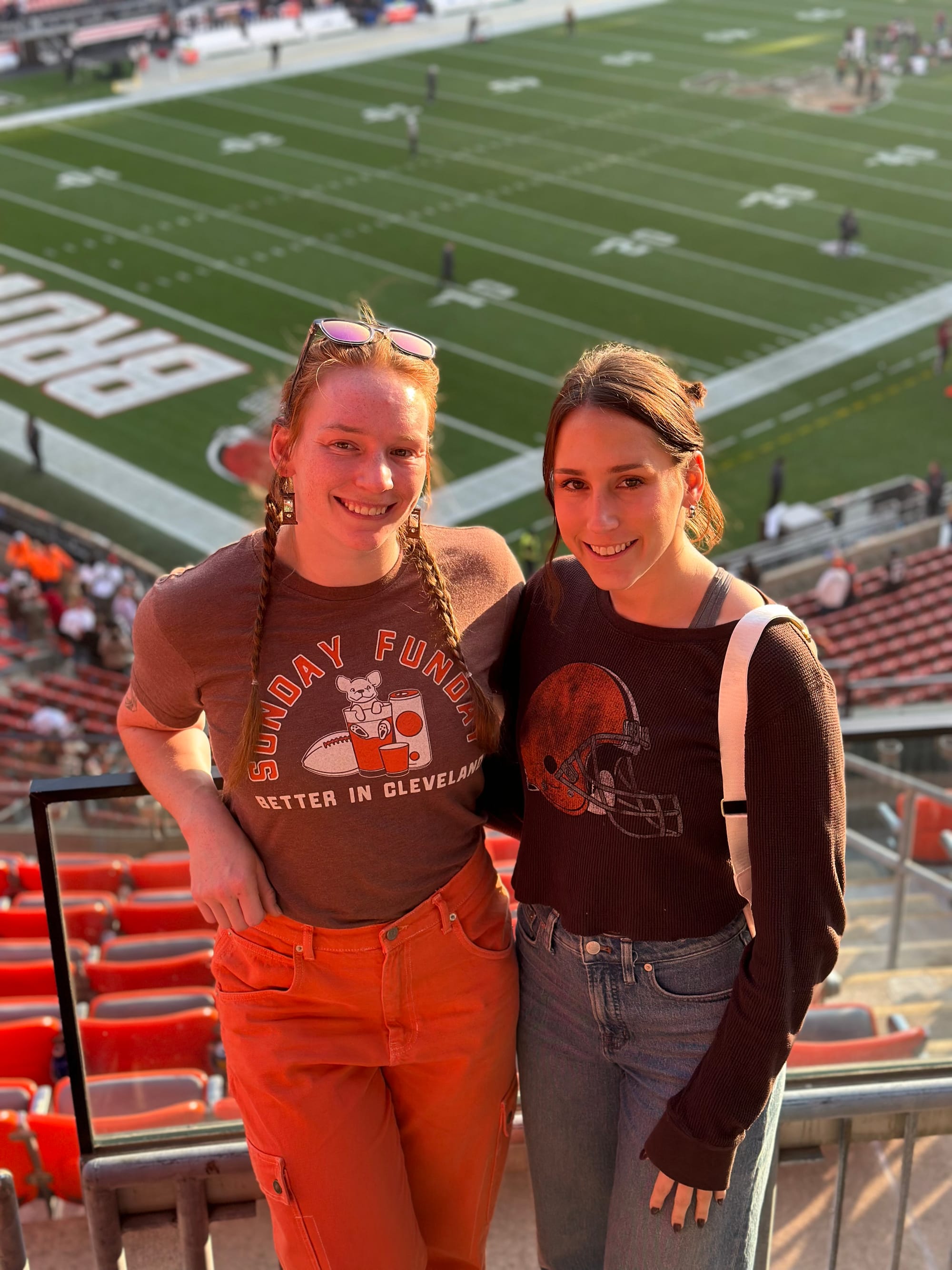
upper right featuring Hank! Halle's baby boy!
the magic of the gym & habit stacking (definition: link)
The gym helps me because it's my social time to be around others. And it's like habit stacking - where you do one thing, and it leads to another, and you reinforce this pattern of things that are all helpful. For example, I go to the gym and I see my friends, and I interact with them, and this wakes up my brain (even my brain!). Then I move my body, and that feels good and wakes me up more. I end up feeling better when I leave the gym than I would have otherwise, even if I was tired when I got there. That keeps me going.
I do think it's really important to recognize that it takes time and space to learn how to take care of yourself.
what did it feel like at your worst? you started to struggle at West Point, but then you somehow continued on to medical school despite the exhaustion affecting your quality of life.
Looking back on it, West Point was hard, but I wasn't the only one tired! Everyone was tired, so I thought it was normal. My worst was really during quarantine in medical school. We had so much more time to rest and recover. And I started to realize that I was sleeping all day. I'd only wake up to go to 2 hours of required class, and 2 hours at the gym, and otherwise I'd sleep - up to 20 hours a day. My twin sister and I live together, and seeing the difference between what she could accomplish and what I could accomplish was really eye-opening and frustrating for me.
looking back to that lowest point now - you're starting your second year of residency! - how does your functionality compare?
Oh, my god. I thought I wasn't going to be able to take Step 1 because I needed a nap after just 10 questions. Looking back on it now, and having a treatment - I have medicine that is supposed to help me and is actually helping me! I have so much more compassion for myself. I give myself permission to say yes to something like resting, and no to something like going out or another engagement, because I know I need the sleep. I don't compare myself to my twin sister as much because I recognize that my body has different needs. I know it's not just me, it's my brain! I don't feel like I'm unable to keep up with everyone else; I just know I have to do what my body needs, and give my brain back what it needs through medication.
I give myself permission to say yes to something like resting, and no to something like going out or another engagement, because I know I need the sleep. I don't compare myself to my twin sister as much because I recognize that my body has different needs.
what is one thing you wish you could change about American medicine? your perspective on this is so powerful, because you are a physician and also a patient!
Access. So many patients come into the emergency department because they can't get care anywhere else. It often takes a long time to get care for your symptoms because it's so hard to get an appointment with specialists.
what advice do you have for aspiring physicians & other healers?
Validate your patients. We often don't find a diagnosis in the ER but that doesn't mean the symptoms aren't real. If you can't find the answer, find someone who can!
We have a lot of patients who often "cry wolf" because they are coming in frequently for issues. Something I've learned is that you never know when it's real, so don't assume they're not sick just because you see them in the ER all the time. I try to remind myself that if people are coming in all the time, it's because they feel sick - they feel that something is not right. Keep in mind their frustrations when you get frustrated with them. I believe that even if a patient has a diagnosis we can't fix in the ER, their symptoms are valid, and there is often at least something we can do to help them feel better.
Whenever I have a patient I can't really help in the ER, I do whatever I can and I explain to them: This is really tough. I am so sorry you are experiencing this, and I can't imagine how hard it must be to live with that. What I can tell you is we have done the testing and workup we can do here in the Emergency room. The next step for you to get help is to see your primary care doctor, and I've made an appointment for you.
Lastly, you don't have to do what everyone else is doing. Just like I kept up with my physical training while I was in medical school and now while I'm in residency. Just because others aren't working out or taking care of themselves doesn't mean that has to be you. Same with the approach you take to caring for your patients.
You don't have to do what everyone else is doing.
